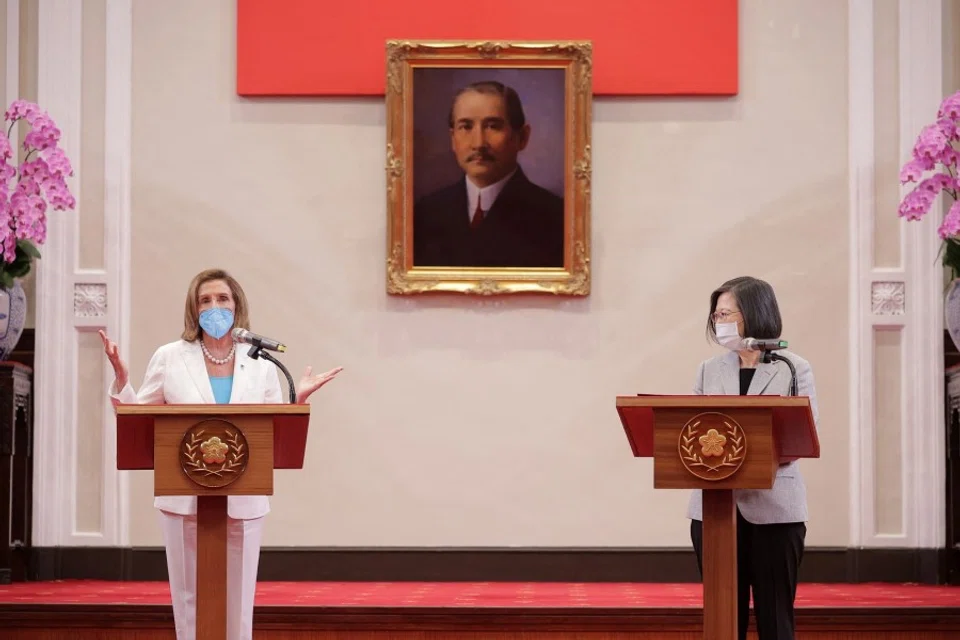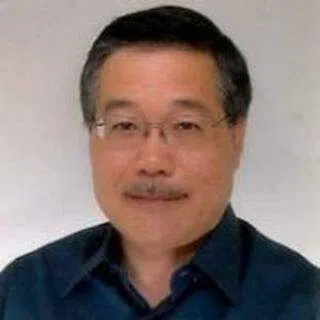The lasting impact of Pelosi's Taiwan visit on Southeast Asia
ISEAS researcher David Arase says that following Nancy Pelosi's visit to Taiwan, China has sought to bully the island with a series of import bans and a de facto blockade. China's moves seem to follow the pattern of Russian bluster and military mobilisation preceding its invasion of Ukraine, which might then lead to armed conflict that would destabilise and divide Southeast Asia.

Defying ominous warnings and fiery threats from Beijing, US House Speaker Nancy Pelosi and her congressional delegation visited Taiwan on 2 August 2022 as part of their trip to US friends and allies in Asia. In Taipei, she delivered a message of democratic solidarity with Taiwan and continuing support for its self-defence efforts as mandated by the 1979 Taiwan Relations Act.
The visit was not just about theatrics. Pelosi's delegation of Democrats included members of key House committees that manage trade, defence, foreign affairs, and intelligence legislation, and a number of ongoing US-Taiwan talks in these areas would benefit from this visit. Twenty-six Senate Republicans also voiced support for her visit.
Taiwan's predicament
Pelosi's trip has ignited a swirl of media commentary and Chinese punishments of Taiwan. China banned the import of Taiwanese agricultural products in an effort to target Taiwanese localities that support the ruling Democratic Progressive Party (DPP). It also announced live-fire military exercises in six maritime zones around Taiwan, of which three intrude into Taiwan's coastal territorial waters. These drills demonstrate China's ability to blockade the island's air and maritime connections to the wider world.
Pelosi's visit to Taiwan highlighted how much the triangular relationship between China, Taiwan and the US has changed in the 50 years since President Richard Nixon visited China in 1972. These changes directly affect the strategic environment in Southeast Asia.
Tsai's notable reluctance to voice an opinion on Pelosi's visit prior to her arrival points to the sad predicament of Taiwan today.

Some 50 years ago, Republic of China President Chiang Kai-shek and other mainland-born Kuomintang (KMT) leaders dreamed of returning to mainland China to reclaim it under the KMT. Today, Tsai Ing-wen's DPP government is joined by a large majority of Taiwan's population in wanting a continuation of the status quo - neither formal independence nor submission to the People's Republic of China (PRC) rule.
Only 1-2% of the population strongly identify with mainland China whereas almost 80% identify solely as Taiwanese and recoil from the thought of rule by an increasingly repressive Chinese Communist Party. PRC President Xi Jinping cannot tolerate this and now threatens a military takeover of Taiwan unless Tsai accepts his offer of "one country-two systems" rule.
Tsai's notable reluctance to voice an opinion on Pelosi's visit prior to her arrival points to the sad predicament of Taiwan today. If she expressed approval, this would anger Xi and draw punishment; if she rejected Pelosi's visit, she risked alienating a powerful benefactor and demoralising her people. Now that Pelosi's visit showed up China's failure to frighten these two leaders, Beijing's anger will be taken out on an even more vulnerable Taiwan.
China's rise and great rejuvenation
Fifty years ago, China was poor, angry and isolated. In 1967, Nixon wrote in Foreign Affairs, "We simply cannot afford to leave China forever outside the family of nations, there to nurture its fantasies, cherish its hates and threaten its neighbours." Nixon opened the door to China in 1972, which then decided to reform and open up under Deng Xiaoping.
Today, China has become rich, powerful, and central to the global economy. Nevertheless, China remains unhappy. Under Xi Jinping, China dreams of regaining the kind of power and centrality that ancient Chinese empires claimed. Though its power has grown, China's ambition has raced ahead, causing it to upset the status quo in Taiwan and elsewhere along its Asian periphery. Ironically, this only further alienates the Taiwanese people and causes the US and Taiwan to draw closer, which is precisely what China wants to forestall.
... if Taiwan fell into the hands of a hostile China, the US would lose a solid defence perimeter in the first island chain...
The US has also changed its attitude toward the PRC and Taiwan in recent years. Starting from the Bill Clinton administration, China was considered a friendly nation and potential strategic partner. But after China began assertively pushing its revisionist demands in the South China Sea from 2009, it became clear that as a rising great power China wanted a reduced US presence in Asia and recognition of China's paramount interests.

Beginning with the Trump administration, the US has reclassified China as a strategic rival to be taken seriously. This led to the US Free and Open Indo-Pacific strategy, the resumption of the Quadrilateral Strategic Dialogue among the US, Japan, India and Australia, and a new US National Security Strategy. All this happened in 2017, and each initiative took China as its pacing challenge.
Hindering US ties
At the same time, the US has reassessed its view of Taiwan. First, Taiwan had transitioned from authoritarian martial law rule to a peaceful and prosperous free market democracy that modelled what the US had hoped China would become. Second, Taiwan had become the world's largest producer of advanced semiconductors indispensable to the US economy and military. Finally, if Taiwan fell into the hands of a hostile China, the US would lose a solid defence perimeter in the first island chain and would have to fall back to a disadvantaged mid-Pacific or West Coast-based defensive posture. For all these reasons, the US cannot be indifferent to Taiwan's fate.
China's over-the-top bullying is likely to catalyse Congressional and US public opinion towards supporting the continuation of a strong US Indo-Pacific presence no matter who wins future US elections.
Taiwan's situation may have lessons for Southeast Asian states facing Chinese demands in the South China Sea. The changing dynamic in the China-Taiwan-US strategic triangle shows that as China grows stronger, it may bully and make demands on smaller and weaker neighbours. It could seek to hinder, if not sever, their ties with the US.
Ironically, this is pushing Taiwan and the US closer together to consider how to counter increasingly aggressive Chinese moves that seem to follow the pattern of Russian bluster and military mobilisation preceding its invasion of Ukraine. This could lead to armed conflict that would have a profoundly destabilising and divisive impact on Southeast Asia.
The US Congress and public will remember the drama of the Pelosi trip. China's over-the-top bullying is likely to catalyse Congressional and US public opinion towards supporting the continuation of a strong US Indo-Pacific presence no matter who wins future US elections.
This article was first published by ISEAS - Yusof Ishak Institute as a Fulcrum commentary.
Related: Five big questions about Nancy Pelosi's Taiwan visit | Taiwan likely to become biggest loser with Pelosi's visit | Did Beijing just score a victory without battle with Pelosi's Taiwan visit? | Nationalist sentiment exploding in China over Pelosi's visit | China and the US not ready for showdown over Taiwan | Taiwan: A runway for great powers to flex their muscles? | Has China's propaganda on the Taiwan situation failed its public?



![[Photos] Fact versus fiction: The portrayal of WWII anti-Japanese martyrs in Taiwan](https://cassette.sphdigital.com.sg/image/thinkchina/3494f8bd481870f7c65b881fd21a3fd733f573f23232376e39c532a2c7593cbc)

